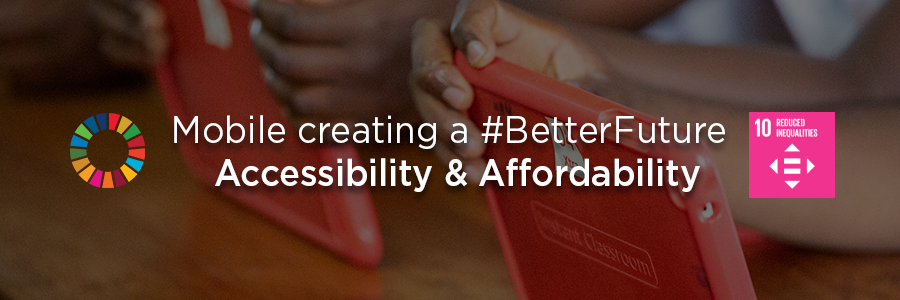
Whilst extending coverage is a priority, it alone cannot address the problem of digital inclusion. Beyond the ‘the coverage gap’, in order to address the “usage gap” the internet must also be accessible, and affordable. Driving digital inclusion goes beyond the provision of network coverage, with accessibility and affordability as key barriers for potential users. Access to affordable handsets, electricity, ability to buy data services and formal identification to meet SIM registration requirements are fundamental to increasing usage of mobile internet. Addressing these barriers, mobile operators are working with the wider vertical sectors, governments and civil society organisations to enable communities to access affordable mobile internet.
Of paramount importance is creating an enabling environment that leverages the full power of the mobile internet to engage more citizens and further drive digital inclusion.

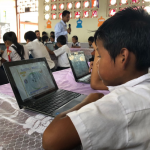
Supporting education
With over 600,000 Syrian refugees in Jordan, approximately 1 in 10 being children who are not in school, access to education is a challenge.
Orange Jordan have created a solution, ‘Zidni Elman’, a self-learning app for a smartphone or tablet that means the students can study at their own pace without having to be in school or even have a teacher with them. This flexibility is important, because one of the biggest challenges of teaching refugee children is the varying age and education levels in the same classroom. Orange have donated thousands of free tablets to refugee centres, with education content designed around the Jordanian curriculum to help the students integrate into the country’s public school system. Currently more than 20,000 young Syrian refugees are benefitting from Zedni Elman in 146 UNICEF refugee centres in Jordan.
Resources
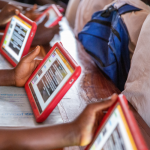
Instant Network School
Nyarugusu is Tanzania’s largest refugee camp and the fifth largest in the world. In 2018 it was home to over 150,000 displaced people. The average stay of a child in a refugee camp is 17 years. Of the 68 million displaced people on the planet, over 50 per cent of them are children.
Vodafone’s Instant Network School’s Programme brings a unique and innovative educational solution to Nyarugusu with their Instant Classroom, otherwise known as the ‘classroom in a box’.
Easy to charge, store and transport, each Instant Classroom is equipped with a laptop, 25 tablets pre-loaded with educational software, a projector, a speaker and a hotspot modem with 3G connectivity.
As of 2018 there are 31 Vodafone Instant Network Schools in 7 refugee camps in Tanzania, Kenya, South Sudan and the Democratic Republic of Congo, benefitting over 66,000 students across the African continent.
Resources

Digital identity
Proof of identity (digitally) is increasingly a prerequisite for citizens to become digital participants in the new digital economy, including being able to access mobile services. In short, digital identity is key for digital inclusion. Over a billion people around the world still lack formal identification. The majority are women, girls, people who are poor or live in remote areas and forcibly displaced persons in Africa and Asia. Mobile can help governments close the identity gap, in particular by supporting efforts to enrol more people into a civil registration or national ID programmes. For example, digital birth registration initiatives by Telenor Pakistan and Tigo Tanzania, demonstrated how leveraging the mobile agent network and a simple SMS interface or smartphone app could enable parents and authorised community members such as health workers, teachers, education staff and/or medical staff in health facilities, etc., to report births in their communities.
Resources
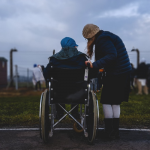
Supporting persons with disabilities
In many parts of the world, persons with disabilities have limited access to information and communication technologies (ICT). Digital innovations can bridge the access gap and promote the inclusion of persons with disabilities.
Mobile phones have a great potential to empower persons with disabilities and enable access to basic services, mostly inaccessible to them, such as education, employment, and even entertainment.
In Turkey, Turkcell offers ‘My Dream Companion’, a platform that makes information and entertainment more accessible for persons with visual impairment. By designing a fully accessible app, users have access to the latest news, audio books and other useful information such as weather updates and transport recommendations. The app also offers indoor navigation for some public places such as shopping centres. In addition, Turkcell also offers a ‘Visual Customer Service’ that provides services in sign language to customers with hearing impairment for free.
Resources

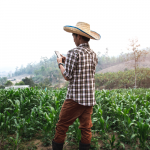
Single parent families
There are 1.64 million single parent families living in Canada. Of those, 21 per cent of single mothers and 7 per cent of single fathers raise their children in poverty. Of the total amount of poverty-stricken families in the country, 42 per cent cannot afford internet access. Working with the Governments of British Columbia and Alberta, mobile operator Telus has launched ‘Internet For Good’, a first of its kind initiative in Canada. Now, low-income single parent families can receive high speed broadband with 350 GB of data for less than 10 dollars a month. Telus has reached 15,000 one-parent families in Alberta and 18,000 single parent families in British Columbia with a view to expand the program to include other low-income segments of the population.
Resources
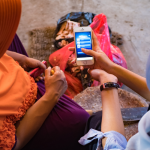
Smartphone loans
In Bangladesh, Robi Axiata partnered with Bank Asia and Cignifi to launch Joyeeta, a monthly smartphone bundle programme with preferential rates for women customers. Robi works with big data analytics partner Cignifi to identify suitable credit-worth customers for the Joyeeta offer. Pre-selected women are able to purchase the smartphone handset and a voice, data and SMS bundle for an attractive monthly instalment without any credit or deposit. Female customers are charged BDT 499 ($USD 5.60) per month over 15 months, whereas male customers are charged BDT 599 ($USD 6.80) per month over 12 months and require a minimum 20 per cent deposit.
Through the Joyeeta programme, Robi aims to double the number of female subscribers who use mobile data services, to reach half a million devices.
Resources
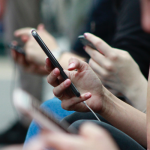
Affordable 4G devices
In Kenya, Safaricom PLC partnered with Google to launch Maisha ni Digital (‘Life is digital’), a campaign which aims to drive access to smartphones and internet through subsidized low cost 4G devices (the Neon range).
Resources
Affordable smartphone in Pakistan: To improve digital access, Jazz has launched Jazz Digit 4G. While Pakistan boasts having some of the cheapest tariff rates for voice and data, the main barrier to internet has been the affordability of smartphones. To help address this barrier Jazz has partnered with KaiOS Technologies to release the Jazz Digit 4G smart feature phone. It is the most affordable smart feature phone on the global market, at a down payment of just US$ 12 (PKR 1800). The customer is required to sign up for a one-year service with Jazz at an extremely affordable US$2/month which includes 1,000 minutes, 1000MB data, free SMS and free calling to doctors along with unlimited Facebook and WhatsApp for the first 3 months.
Resources
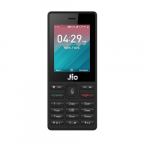
The JioPhone
In India, Reliance Jio launched the JioPhone – a 4G handset available for less than $10. By launching this LTE-enabled smart feature phone, it has addressed one of the main barriers to internet access for women in India (affordability), selling 100 million devices in 2 years.
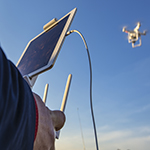
Affordable Broadband
Orange: Coup de Pouce Offer
In France, 12 per cent of low-income households do not have home broadband. 5 million people live in social uncertainty and are digitally excluded.
The Orange offer, Coup de Pouce was developed in partnership with inclusion actors, such as associations in the Hauts-de-France region and the Action Tank “Entreprise et Pauvreté”. The scheme is based on joint action between Orange and local associations to support low-income households who do not have access to broadband at home. It offers fixed internet, up to 160 TV channels and unlimited fixed voice for 19,99€/month. Also, customers can purchase a good quality, recently reconditioned laptop for 175 €. Free training “Ateliers Numériques” is offered to teach them the first steps on the internet and how to protect their data.
Resources
Do you have an initiative you would like to showcase? Get in touch & suggest your initiative here.